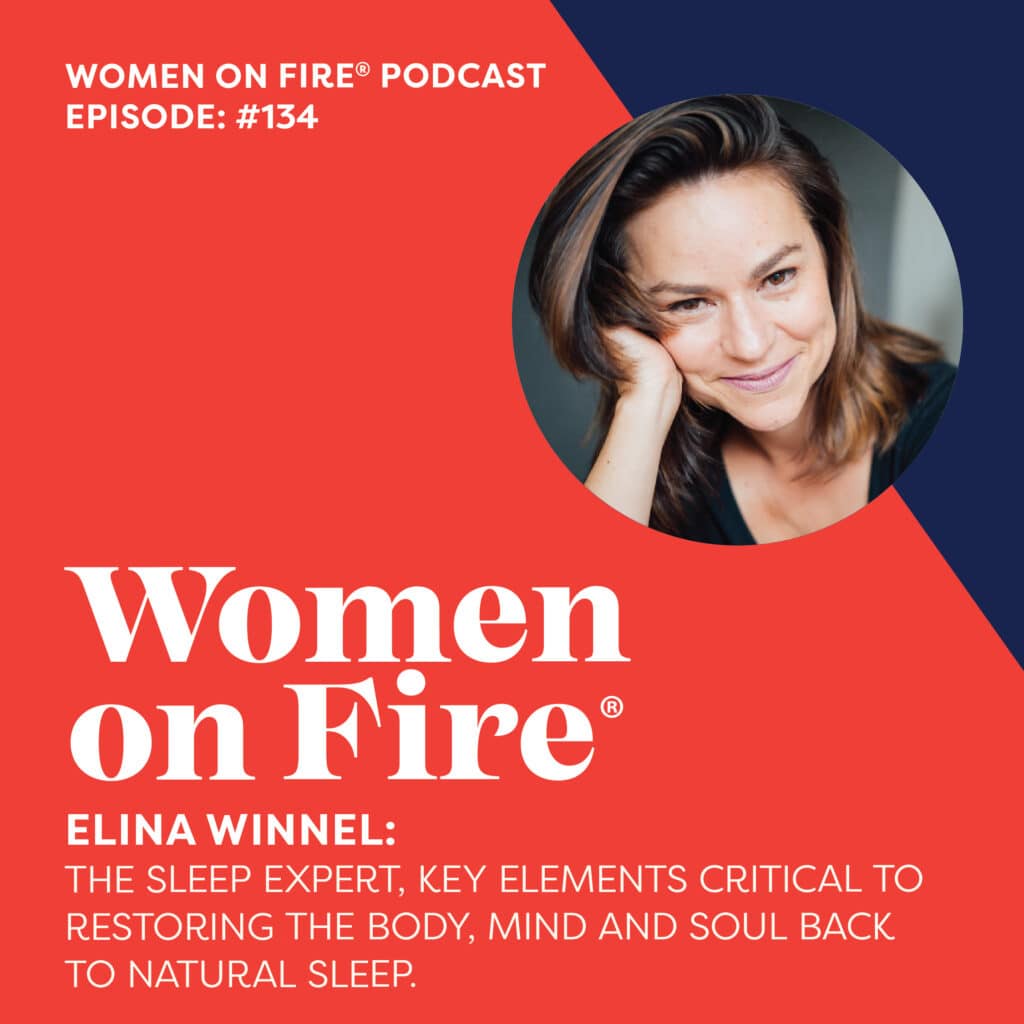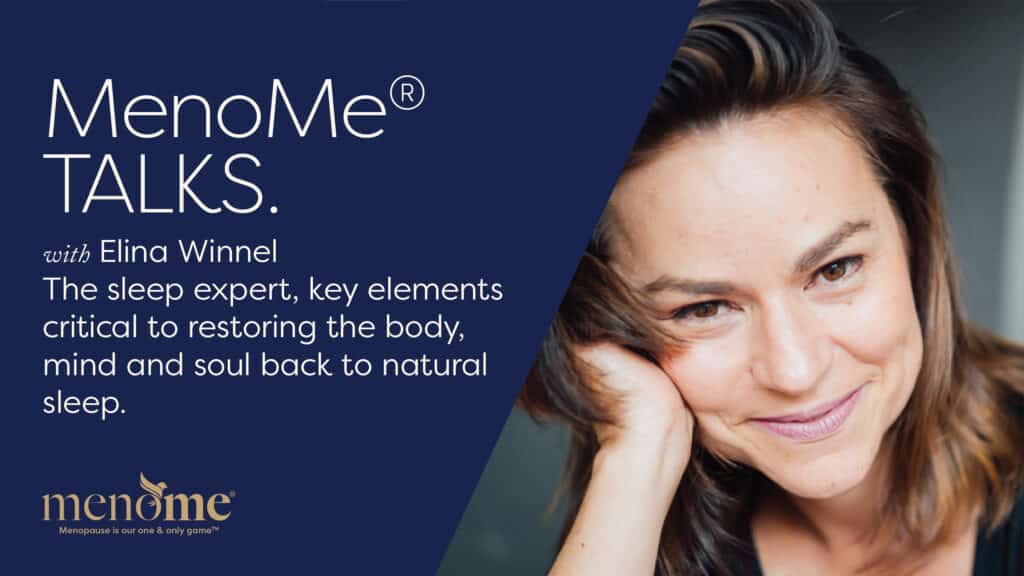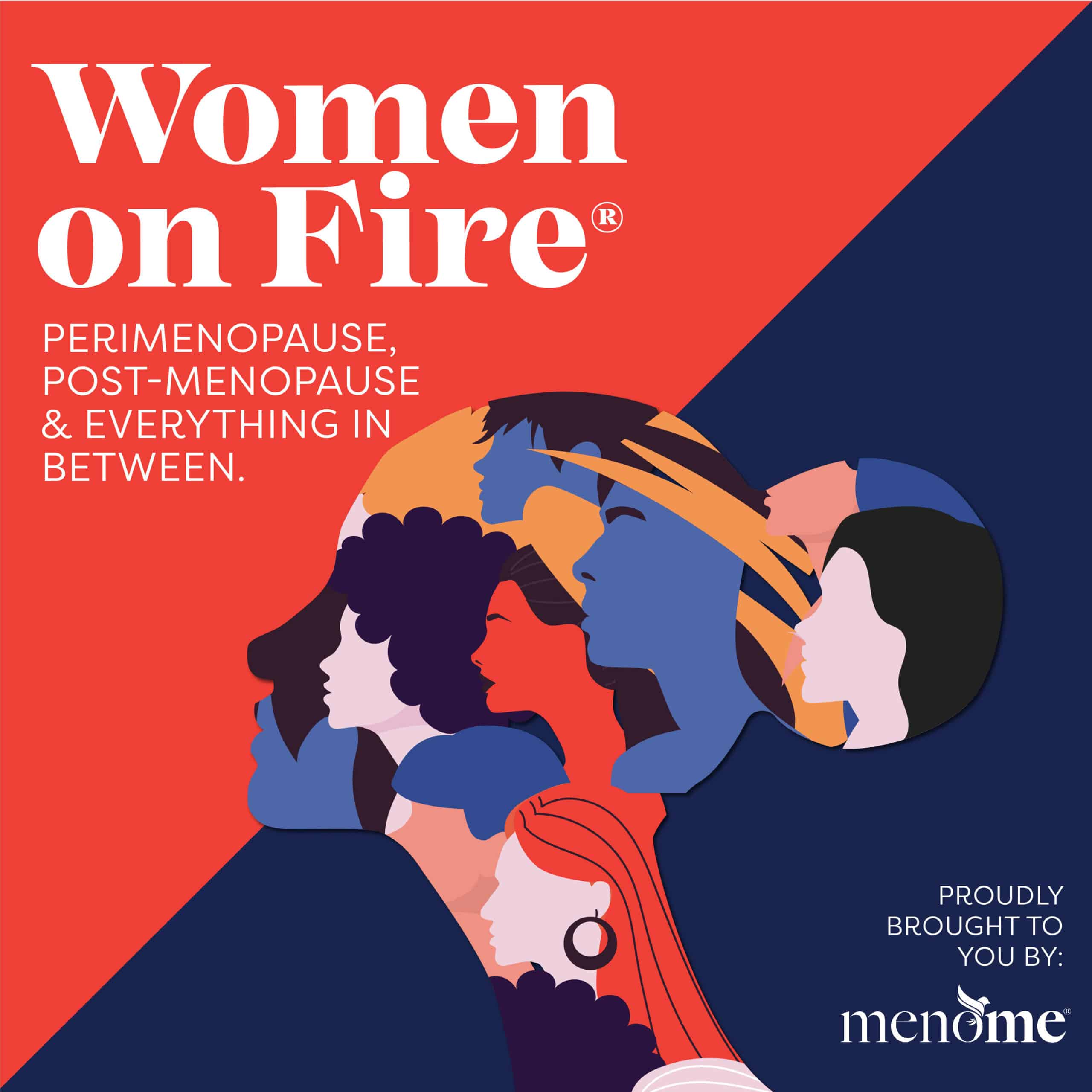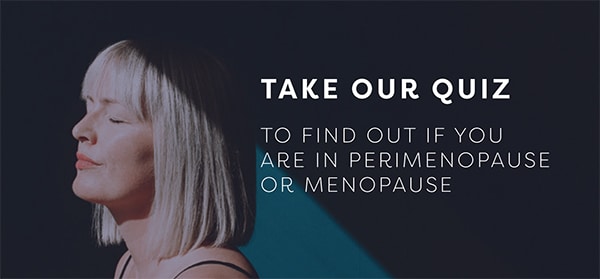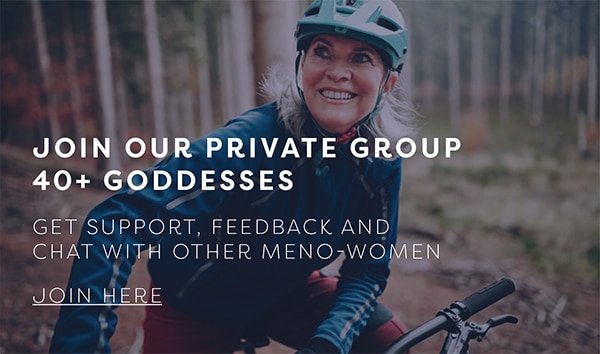Podcast Episode
Subscribe to the Women on Fire® podcast here to listen on your favourite podcast platform.
In this episode, we talk about
- 00:00 Introduction
- 01:04 About Elina
- 02:24 Alina’s Journey: From Finance to Sleep Expert
- 05:40 Understanding the Autonomic Nervous System
- 08:44 The Impact of Stress on Sleep
- 12:10 Managing Hot Flashes and Night Sweats
- 14:32 The Role of Melatonin and Relaxation
- 17:46 Stress as an Inside Job
- 20:40 Patterns of Thinking and Their Effects on Sleep
- 23:31 Attuning to the Body and Nervous System
- 26:14 Lifestyle Factors Affecting Sleep
- 30:27 The Importance of Community and Connection
- 31:56 Finding Effective Solutions for Sleep Issues
- 34:45 Practical Steps to Balance the Nervous System
- 38:00 The Connection Between Sleep and Mental Health
- 40:15 Mind Chatter and Its Impact on Sleep
- 43:09 Trusting Your Gut and Heart for Better Sleep
- 45:04 Conclusion and Resources for Better Sleep
Episode Resources:
- Download: 7 Secrets To Better Sleep here
Earthing sheets & products (20% discount): here
Elina’s website: https://thesleepexpert.com
- Instagram: https://www.instagram.com/the.sleep.expert
- Facebook: https://www.facebook.com/thesleepexpert
- Botanical sleep support: Merry Peri® for peri & Perky Post® for post-menopause here
Video Version
Transcript
Jenna
It is my pleasure to introduce you to Elina Winnel. Elina is widely recognised as a leading sleep expert and she regularly appears on major TV networks.
After overcoming her own struggles with chronic insomnia, Elina developed a unique science-backed approach that addresses the root cause of sleep difficulties. So there is hope, ladies. Her approach goes beyond quick fixes. She addresses the underlying causes of sleep issues to unlock lasting transformation. And do we not love the sound of that?
She empowers people to reclaim restful, high-quality sleep, which is what we’re all after, even those who have struggled for years and thought Better Sleep was out of their reach.
I sincerely hope you enjoy our conversation today, but also that you garner some wonderful wisdom to help with your own sleep issues.
Hi Elina, thank you so much for being my guest today. How are you?
Elina (02:26)
Hey Jenna, I’m well, how are you?
Jenna (02:17)
Good, I’m looking forward to hearing all your wisdom about sleep. And I know the audience is as well.
So can we start off, can you share a little bit about your own story? How you became to be came to be dedicated to sleep?
Elina (02:37)
I certainly can. And I guess I would just say, because of my own personal journey with sleep, that’s probably why I have a bit of a different and more practical approach to sleep than many.
So it’s my second career working in sleep. My first career I worked in finance, very high stress job. And I went through a period of time where I have chronic stress and I developed chronic insomnia. And I went to get help from specialist after specialist, expert after expert and nobody could actually help me with my sleep. I went through a horrible horrendous time and it was so bad my sleep that at one point I could not sleep without Sleeping medication. So, you know, was it was very very bad for a long time and it affected every aspect of my life from my Finances to my relationships, you know, you’re not in your head. You know what it’s like to not sleep well, and it was severe and I knew at that point that I had to either figure out a solution or pretty much I would not have had any life quality left. So that became my new mission and I quit my job and went seeking answers and studied anything and everything that I found helped me with my sleep. When I came out the other end and I resolved my sleep issues, I was determined to help other people with it because, I looked back and I went, why didn’t anyone tell me about these things that I learnt? So, it gives me a lot of joy to be able to share those things with people today because it’s unnecessary suffering that people go through around their sleep and the impacts of their sleep. That’s how I got into it.
Jenna (04:30)
It reflects my own story as to why I do what I do too. Lived experience means that you understand what someone else is experiencing don’t you?
Elina (04:46)
Exactly and so we can really share things from a place of passion and care with others yeah.
Jenna (04:52)
So what sort of things did you look at? Did you go all over the world?
Elina (04:56)
I did, still ended up coming back home, but I studied with some incredible people around the world and it was really interesting one of the things that these, I would call ‘the masters’ kept on coming back to (or ‘masters in their fields’), was the autonomic nervous system, and other aspects, but that’s one thing that I’d like to speak a bit more to today because there seemed to be a theme, a thread amongst these incredible people that the autonomic nervous system governs so many things in our system, including our sleep. So for those who don’t know, our autonomic nervous system governs the functions that we don’t consciously activate… our heartbeat, our sleep, those kinds of things, our digestion. And so learning how to bring the autonomic nervous system into balance and reduce the sympathetic nervous system, which is our fight, flight, stress response and increase, (there’s a lost art of relaxation these days), increase the parasympathetic nervous system (the rest and digest functions). When we’re able to do that, we sleep better. So that was kind of the theme that kept on emerging and it was spot on. Because when I worked on that, it really helped my sleep. And you know, with the hundreds of people I’ve helped since, it’s always a key component. I’m not saying it’s the only one, but it’s a key component.
Jenna (06:36)
We were chatting just before we came on and I said to you, do you look at the circadian rhythm? Do you look at triggers like caffeine and alcohol and things? And you were saying that they are very basic parts of the whole sleep equation. Why is that?
Elina (06:59)
Yeah. And this is why a lot of people really struggle because when we turn on the media or we read, certain books on sleep, they’ll say, cut out coffee, go to bed at the same time every night, don’t sleep past this time, which I don’t actually agree with. But but most of these things are just basic, it’s what they call sleep hygiene. So they’re the really, really basic things which may or may not help, I’m also going to add, because some people can actually drink coffee and they can actually sleep okay, some people can… anyway, we can talk a bit more about that… so these are the very basics. But here’s the thing, if your nervous system is out of balance, it will not matter what time you go to bed, how much coffee or alcohol you do or don’t drink, it just won’t matter. And also, a lot of people will get all of those things correct, “so-called correct”, but still not be able to sleep. So if they haven’t addressed the nervous system, then usually, not always, but usually that’s why.
Jenna (08:05)
Which actually very much links into our community, perimenopause, menopause, postmenopause, because the central nervous system is very much involved in that, the whole HPA TG axis, your hypothalamus, your pituitary gland, your adrenals. It’s not just about your ovaries. So that all links in there, doesn’t it?
Elina (08:34)
All connected. And that’s the other thing, Jenna. You know, a lot of people and professionals don’t understand that we work as a system. We don’t have isolated.
Yeah, like you said, the ovaries aren’t isolated from the HPT. You know, it’s like, it just doesn’t work that way. So we need to understand the whole system and how it works together to really do ourselves justice. Yeah, that’s it.
Jenna (08:56)
And I love that because our bodies are always working to get back into homeostasis, right? Balance. So if we’re talking about hormones, as we do all the time in my world, the other hormones pick up and fight to try and get the rest of the hormones back into balance. Do you see that? Because you do work with women in our life stage, don’t you?
Elina (09:26)
Yeah. So let me just set up the frame first. So with sleep, a lot of people will come to me and they’ll say, I’m not stressed, stress is not affecting my sleep. But when we delve down into it, they start to understand actually they are stressed because what happens is we get used to our normal state. So if we normally have an elevated level of stress, which the average person does today, we spend most of our time in the sympathetic nervous system. So if we are used to being in a state of stress, we don’t realise it’s there. So, the very first port of call is to understand what are our stress levels and how we start to get those down and how we start to learn to relax. Now, where this comes in with menopause, one of the big areas, is that if we already have elevated stress hormone levels in the body, adrenaline, cortisol, when it comes to fluctuations in hormones with perimenopause or menopause, then it’s going to be even worse because our stress hormone levels are already elevated. So someone might be lying there at night, they’ve got a fluctuation in their hormone levels and that triggers off a peak in cortisol or adrenaline which causes a hot flush. So say there’s a sudden drop in estrogen or progesterone and hot flush comes on. But if our cortisol and adrenaline levels are already high and then the drop in estrogen/progesterone cause a higher level of stress hormones, then that’s when we have a hot flush and it’s a problem.
The typical response to that is to either panic or get angry or go into fear, and that makes the levels go even higher. So it’s actually really important that we learn how to reduce our stress levels, especially at those times, because otherwise we just exacerbate the issue.
Elina (11:40)
So I think it’s probably worth just mentioning, one of the worst things someone can do if they’re experiencing hot flush is to panic about it. So just stop and breathe, and I know it’s uncomfortable, I totally get it, but let’s not make it worse. Stop, breathe, try to calm the nervous system so that we can allow it to pass, with ease and grace as much as possible, rather than actually making it worse. If it happens in sleep, obviously the worse we make it, the longer it will last and the more it affects our sleep. So it takes a lot of discipline to be able to catch ourselves in those moments and change our response, our reaction.
Jenna (12:23)
And I think for a lot of women too, the night sweats, they can get very saturated linen that will wake them up or the overactive bladder that will wake them up. So how do you see that? I imagine coming from your point of view with the autonomic nervous system would be prior to bed trying to get yourself as calm as possible.
Elina (12:52)
So let me just dispel what is probably the biggest myth around sleep. People say, wind down before bed, an hour or two before bed. No, our sleep is determined by our whole day. So really it’s about reducing our stress levels and bringing homeostasis or balance to the autonomic nervous system throughout the daytime. Because we can’t control what happens when we go unconscious. And the lower our stress levels are during the day, the lower they’ll be when we go to bed. So it’s not just that hour or two before bed. I want to make that really, really clear. But then obviously, when we do get into bed, there’s certain things that, can be done to at least minimise what happens. And you mentioned the night sweats… just a few really simple things around that, which probably most people are already doing, but it’s to make sure that you have everything breathable so that the sweats don’t get worse. So make sure that you’ve got either cotton or natural flannel or bamboo type materials, whether it’s your pajamas, your bedding, have a natural mattress. All those kinds of things to allow maximum breathability and that helps to regulate temperatures as well.
Jenna (14:16)
Melatonin. I think most people are probably quite familiar with melatonin now because it gets talked about a lot. Adenosine, not so much, but I think that’s coming more to the fore now. How do they come into this equation?
Elina (14:41)
So melatonin is talked about a lot more. Obviously, speak to your doctor about any supplements that you’re going to take for your sleep. I know personally I prefer the natural type supplements if people are going to use them rather than the benzos… yeah. But melatonin, we obviously produce naturally, so sure, people can take it as a supplement, I know it helps some people, other people don’t notice the difference. Because again, our stress hormones will always trump the relaxation hormones. Melatonin is a relaxation hormone. It helps us relax. It helps us to sleep.
But in terms of taking melatonin, first you want to get your stress levels down so the melatonin actually works. But then also we need to look at why aren’t we producing enough melatonin. So you could take it as a supplement if that’s what your doctor prescribes, but also I encourage people to start to look at how do you start to produce more naturally? And again, coming back to that same theme, well, (slightly differently now), how do we actually get our relaxation levels up? Because what I find is, relaxation’s a lost art these days. And again, it’s one of those things, clients will come to me and say, yeah, I can relax, no worries. But we go through a process and then when they have actually learned how to truly relax, it’s a new experience for them. It’s not just like watching television, you know, kind of relax when you’re watching TV or watching movies, something like that. It’s a whole different experience. And so why I’m saying that is… we have lost the art of relaxation in our society. So if we are not truly relaxing, we are not producing melatonin levels that we need for really good quality sleep, for deep sleep, yeah good quality sleep for great dreams that help us in consolidating memory and all kinds of things. Melatonin supposedly decreases with age… I don’t like this whole “this happens as you get older”. I would say with less relaxation it decreases and that happens to happen when we kind of slacken off over time with so-called age. That’s what I would say about that.
Jenna (17:23)
That’s interesting, isn’t it? And I think for us at this menopause life stage too, with that comes a whole lot of other things that stop you relaxing. Like women are known for doing everything and taking care of everyone else anyway. But in Peri, when all the hormones are fluctuating, there’s the hormonal chaos and the time of most symptoms, that’s really hard, especially if you’re balancing children and work and career. And then oftentimes, it’s often called the sandwich generation because looking after aging parents and things as well. So linking back into your relaxation, there’s all this stress going on with life just living life. So it would become more of a necessity, I imagine.
Elina (18:23)
Yeah. So, okay, I’m going to say something which a lot of people won’t like, but I would also say stress is an inside job. And I get it, the sandwiching, it makes it very, very difficult. And that’s why we need to be skilled at how we manage our stress, not just manage it, I’m going to change the terminology there, how we ‘create’ our stress. Because when I say it’s an inside job, it’s our perception of reality that creates stress. So if, for example, we’re worried about our parents who are unwell, if our parents are getting older, we’re worried about them being unwell, how you perceive that is what will create the stress. So you can sit there kind of catastrophising, they might die, and kind of have all these kinds of thoughts that then create stress hormones in the body, or we can be with reality and move through reality as it arises and not create stress for ourselves. Did that make sense? I know you work as a coach, so I think you get that.
Jenna (19:36)
I totally do. And it’s a lot of it’s about our reaction to something isn’t it? I know I’ve had to learn that in my life and I’m not a hundred percent expert at it but certainly yeah it is how we react to something as well like you say. I have a friend she calls it projecting.
Elina (20:06)
And it’s interesting with all people I work with, I notice patterns of thinking that affect sleep. And some of the most common patterns of thinking that then affect our autonomic nervous system, put us into flight off-flight, produce the stress hormones that affect our sleep, worst case scenario type thinking, what will go wrong in the future. Some people also call it catastrophising, future thinking all of the possible things that may go wrong in the future. Also what we call external references, worrying about what other people think or feel or believe.
And then what we call options are thinking about all the possibilities, not just one thing, multiple things. So, definitely the way that we think actually affects our stress levels and hence our sleep.
Jenna (21:02)
Mind power, right?
Elina (21:05)
Absolutely. And I know some people, they’re not interested in changing how they think, but for those who are, it’s to really know that you can start to understand your mind and change the patterns of thinking that create stress or anxiety, which then affects sleep, as well as other health issues and digestion and a whole host of things. So yeah, absolutely.
Jenna (21:30)
That’s something you work with? Is part of what you do?
Elina (21:37)
Yeah, one of the first things I do is put together a stress profile for people. So that involves helping them to understand the top five to 10 patterns of thinking that they have, that they run over and over hundreds of times a day. And we all do, if anyone’s thinking, I don’t do that, you do. It’s just that you don’t know what they are. Often your friends will point to them, they’ll kind of say, you always think about what might go wrong. So sometimes you might have an inkling, but usually people don’t have a clue what their patterns of thinking are.
So yeah, it’s definitely one of the first things I do because until people understand how their mind operates, it’s very difficult to bring the autonomic nervous system into balance. Most people use techniques like meditation, breathing exercises, and all of that is great. But when you’re not meditating, when you’re not doing your breathing exercises, then you go back to your stressed state, typically. So that’s why it’s important to approach from a few different angles. For someone who really wants to make a change with their sleep.
Jenna (22:42)
Does that take long for people to be able to learn to alter their way of thinking?
Elina (22:50)
It really depends. I have some clients who will change it very, very quickly. Like once they have the awareness around what their patterns are, some of the key patterns they can start catching straight away and boy does it make a difference. And then other people, if people are really stuck it might take them a bit longer. So it really depends where people are at. But yeah, it can be done very quickly.
Jenna (23:18)
So that’s your first point of call to look at the mind. And what else would you recommend for women?
Elina (23:28)
And for anyone as well, just to really start to attune to your body and your nervous system. And, when I mentioned before that people’s stress levels are higher than what they realise, if we tune into our body, that is what will actually tell us the truth and we’ll start to understand where our stress or relaxation levels are at. So, it’s like your listeners right now or viewers can even just check them with their breathing. I always encourage people, place a hand on your chest and on your belly and just start to notice where you’re breathing from. Is it more from the chest? Is it more from the belly? And if you’re breathing more high, fast, shallow breaths from the chest, chances are you may spend more of your time in that sympathetic state. If you’re breathing more low, slow, deep breaths from the belly then you may have a well-balanced nervous system. Chances are you don’t have problems with your sleep then. Also really attuning to the autonomic nervous system and our body. It’s interesting, we spend so much of our time in our heads these days, but the more presence we bring into the body, see, we get tired through our body, not through our mind. I know we can get exhaustion in our head, but it’s the body that gets tired. Just like our body digests food, the body is what gets tired. So when we’re disconnected from our body, we could be exhausted, but not feel tired. So again, it’s like also attuning to the autonomic nervous system, attuning to the body gives us so much information that we’re often disconnected from.
So there are two really important things, understanding what’s happening in our mind and how we’re creating stress or anxiety or depression. And also what’s happening in the body and the nervous system, so we can really get a gauge of what’s truly going on for us, not just what we think might be going on for us. The body never lies.
Jenna (25:38)
And if it’s struggling, it will yell, won’t it? In my experience.
Elina (25:45)
It might yell, but we still might not be listening. But you’re right, it usually often it gets to that point and we often wait till it gets to that point before we start to listen. So how nice is it if we actually stop to attune to it before it starts yelling?
Jenna (26:04)
And do you find that food and nutrition and overall lifestyle.
Elina (26:18)
Yeah, it does. And so this is where we come back to those basics, the sleep hygiene and definitely movement is so important, exercise. You do have to actually wear your body out so that it wants to sleep at night time. So that’s important with food. Obviously the type of food we eat is important, you know, the more sort of natural or less processed foods you can have better. And also the time of eating is important. So you don’t want to eat two hours before bed. You don’t want to go to bed with an elevated heart rate or with your body focused on digestion rather than healing, because sleep is the time we heal and detoxify as well. So you don’t want your stomach full of food.
Other important lifestyle factors… I mentioned relaxation, try to engage in some things that really, really gets you into that zone where you lose track of space and time and you are completely in flow, whatever that is for you, do a bit more of that. You don’t want to drink liquids too close to bedtime either. Obviously, you want to minimize your bathroom stops. But I will also say with the bathroom, it’s not just about the liquids, it’s also about, again, our nervous system because when we’re in the sympathetic response, we need to go to the bathroom more often because our bladder expands. It releases more easily rather than holding.
What are some other lifestyle things? I don’t know how sort of more open-minded your audience is, but I would say a thing that is actually really important as well, and that’s because we are exposed to so many EMFs these days, electromagnetic frequencies, which do affect our sleep, and you want to try to bring the electrical charge in your body back into balance as well. So we get negative charge from the earth, all of our devices and the wifi and all that, we get positive charge. So earthing really helps and that helps to bring our stress hormones down as well, our stress levels in our body.
Jenna (28:36)
And that is walking on the grass barefoot, isn’t it?
Elina (28:42)
Yeah, there’s a few different ways you can do it. Walking on grass barefoot is the free way and I highly recommend that. If you want something more elaborate, you can get earthing sheets, I use them as well. So then you can earth while you’re sleeping, which is fantastic.
And just being in nature as well.
Jenna (29:04)
So beach walks as well?
Elina (29:07)
Fantastic for it. And I think most people listening to this will relate to how they sleep better when they’ve been out in nature. We start to synchronize to the frequency of nature, which is actually more natural for us, more healthy.
And then also in terms of lifestyle, there’s your basics, like make sure you get some laughter every day, so important. Happier people sleep better.
Jenna (29:40)
And you can fake that too, can’t you?
Elina(29:42)
Yes, yes, absolutely. One of the things that your listeners can do is if they wake up at night, put a smile on your face. It’s so much harder to have negative thoughts when we’re smiling. You can do it during the day as well. Yeah, and exactly, can fake your laughter, can hang out with mates and have a good laugh, don’t be too serious all the time. And get daylight, get sunlight on your skin, that helps our serotonin production, which turns into melatonin at night time. Another thing which is really important, which is often overlooked, is how important community is.
And why I say that, we need to feel safe in order to sleep. So when we sleep, we’re going unconscious, we are defenseless, so we need to have a sense of safety to sleep. And community and family, can be one of the things that helps to create that sense of safety. So also to prioritize that as well. It’s not all just about work.
Jenna (30:58)
In your own story, how long did it take for you to “cure”, for want of a better word, yourself?
Elina (31:11)
I’ll be honest with you, Jenna. It took a long time because the answers were not easily accessible. And that’s why I do what I do today, because sleep is actually not that difficult an issue to resolve if people are struggling with it. It’s just, there’s very little good guidance out there. It mainly focuses on those sleep hygiene factors, which just don’t go deep enough for people that are really struggling or for people who really want to sleep well and get that extra edge, it just doesn’t go deep enough. So it’s hard to actually get good help with sleep. So for me, it did take a long time until I kind of broke out and I had to let go of my previous beliefs around, all the indoctrination through the years of ‘this is what we do to sleep well’, which was not working. And, really find new ways and find some new teachers, new methods.
But once I did that, it’s actually not that hard. It’s really more about having access to approaches that really work.
Jenna (32:35)
And I think really, in summary, you are saying that the key here… (there is a basket of everything in the toolkit), but the key is to learn how to relax? Right?
Elina (32:58)
I would say just a little bit more broadly, bringing the autonomic nervous system into balance is one of the absolute essential keys. If you’re not doing that, it will be very difficult to sleep well, no matter… whether you don’t drink coffee… those other things just won’t even matter. So that’s the most important thing.
So it’s just like, a lot of people, if they’re struggling with digestion, so our autonomic nervous system, the parasympathetic nervous system governs our rest and digest functions, a lot of people that don’t have good digestion also don’t have good sleep because it’s on the same branch of the autonomic nervous system. So just coming back, yes, learning how to deeply relax. That’s the parasympathetic nervous system. Also learning how to reduce our fight, stress, anxiety response. So you’ve sort of got to bring that down, the sympathetic nervous system, reduce its activation and boost the parasympathetic nervous system, the relaxation response. When you’re able to easily move between those, that’s usually when you can sleep well. So most people today kind of get stuck with their foot on the accelerator in that fight, flight response even if they don’t realise it.
That’s why I said, check in with your breathing. Your breathing won’t lie. It will give you a clue as to where your nervous system sits at. And once you understand where it sits at, once you understand the root cause of your problem, that’s when you can actually start to address it. If you don’t know what’s actually causing your sleep issues, then how do you know the solution you’re using is appropriate for what’s going on?
Just to backtrack a bit, I would say the very first step is to understand the root cause. But then I also say in today’s society, for the majority of people, our nervous systems are out of balance, that’s so for a lot of people, that’s what it will be.
Jenna (35:00)
And that is doing some of those things like, like you said, check in with your breathing, maybe breath work, the earthing.
Elina (35:09)
Yeah, so few things your listeners can start to do straight away, during the day, so I want to say with the breathing, it’s a symptom of what’s going on in our nervous system it’s not the cause. I’m not saying people aren’t sleeping well because, I’m breathing high and fast from my upper chest, so that’s why I’m not breathing well. It’s a symptom of what’s going on in your nervous system. So you want to kind of start to change how you think so that you start to bring your nervous system into balance. The thing is you usually need a bit of external help for that. For those who don’t want external help, just start to also slow your breathing down, drop it down. You wanna place your hands on your belly, you can do this a few times a day and really bring your breath into your belly area. So you know, every hour or two, just stop and breathe, really start to retrain your nervous system.
At the same time, you can just relax your muscles, open your posture. Most of us spend our time like this during the day, all scrunched up. And so again, that’s a symptom of being in the fight flight response, so opening up our posture, letting the energy move through our body and getting out of that sympathetic state. So straight away, people can start to work on their posture, being more open, relax their muscles, slow their breathing down and do that.
Start to retrain your nervous system. Start to earth. Start to prioritise a little bit of relaxation time, time with friends as well, where you feel connected and safe. And just remember if you wake up with a hot flush or something like that, you’re sweating, to not panic, not make it worse, but to actually work on your breathing. You do that at that time and really start to calm your nervous system so that it can pass as quickly as possible. And try to notice if you can, what are the patterns of thinking that cause you to contract in your body and go into stress? Is it, are you thinking about what might go wrong in the future? Are you worrying about what someone said about you or what they might think about you? Are you going into the sandwiching, are you going into over responsibility for everyone else and not taking care of yourself? So these are the kinds of patterns it’s really good to start to notice if you can, so that you can start to break free of them and live a more balanced life and have a more balanced way of thinking and a more balanced nervous system.
Jenna (37:58)
Thank you so much, Elina, coming from that different perspective as well. Because we don’t hear that much about the autonomic nervous system as being the cause, do we?
Elina (38:19)
Yeah. And I think that’s probably why so many people can’t resolve their sleep issues because they don’t know about it. I wish I had had someone to help me with that. You know, when I struggled with sleep, I would have never gone down the difficult path that I went down.
Jenna (38:37)
It is difficult. I mean, there’s a reason they used to use sleep deprivation as a form of torture.
Elina (38:48)
As a form of torture, exactly. And speaking to that as well, there’s a huge correlation between sleep and mental health. Obviously, there’s a lot that goes into mental health, but we don’t want to exacerbate our mental wellbeing, or any struggles there with poor sleep or sleep deprivation, so it’s really, really important. And good sleepers are happier people. It’s actually the number one side effect of good sleep that people report. They’re happier.
Jenna (39:26)
We love that. Don’t we?
Elina (39:29)
We all want to be happier, don’t we?
Jenna (39:32)
We do indeed. One of the things that I experienced and I know a lot of other women do, and there’s so many different terms for it.
It’s called mind chatter, it’s often called inner mean girl, (I think Melissa Ambrosini coined that term actually), there’s inner critic. There’s a woman in our Facebook group that I think she calls it the ‘brain committee’. So have you found that that can interfere with sleep like racing mind and over and over and over?
Elina (40;11)
Yes, it’s one of the main things that people say, like they share interviews with their sleep, and it’s so difficult for people going through perimenopause and menopause because when your progesterone levels drop, the mind actually starts chatting to you more. So, it’s another thing that contributes to the difficulty with sleep during that stage. And so that’s why, again, it’s so important to start to understand what’s going on in our mind and how we start to shift it. But also just to be aware that that’s happening. So, just a couple of things to say around that, when we feel more in our body, we think less, it’s actually one of the things that your audience can do is start to drop their attention into their body more.
For example, I’m going to give you a quick exercise. Feel your left foot.
Jenna (41:17)
What literally with my hand?
Elina (41:20)
Ah No, just take your awareness to it, your attention.
Jenna (41:23)
Yeah. Okay.
Elina (41:24)
Yep. Can you feel your left foot? Okay. All right. Before I asked you to do that, did you have an awareness of your left foot? No, you’d forgotten all about it. And that’s how we are with our body most of the time. So first thing I wanted to say around that is because our attention isn’t on our body, we forget it. You know you’re not present in your body if you have to remind yourself, yeah, I’ve got a left foot again or whatever it is. So first of all, drop your attention into your body. Remember you have a body. Now, second thing is when you have your presence, so that was just an example, right? But when your presence is in your body, (I often say to my clients, go south, take your attention south), when your presence is in your body and you’re feeling more, you’re in the sensations of your body, you will think less. So when you were taking your attention to your left foot, I bet you stopped thinking about all the other things. You just want presence in your body, right? So it’s just another technique that people can use when the mind’s racing because yes, there’s hormone fluctuations which is actually causing the mind to speed up and be more active. Drop your attention into your body and be more present with the sensations in your body. And it’s a really great thing to do if you wake up at night, just drop back down into your body, the sensations of your body, focus on your breathing, focus on the sensations in your body. But yeah, it’s tough, ladies get a rough ride through that stage of life because the mind speeds up, the hot flushes,
Jenna (43:04)
There’s so much going on.
Elina(43:06)
But so, you know, also just so people realize that the hormones are playing a part in all of that, inner mean girl. And so I guess one of the other things that can be done is obviously to be aware that inner mean girl syndrome might be happening and to drop in consciously drop into the heart and really remember to stay in that space, I’m gonna say it, stay in a space of love, love for yourself, love for others. But doing that with presence in our heart area, like people often say to me, how do I live in love? How do I do that? And it’s just like, how do I connect to my gut instincts? Your attention needs to be on that part of the body. So if you wanna live in love, have your attention in your heart. If you need to make a decision, you wanna trust your instincts, place your attention in your gut.
Jenna (44:04)
I know, instincts are real, right?
Elina (44:07)
100%, 100%. And science is showing more and more what a big brain our gut is, right? So, head, heart & gut are the three biggest brains. And it’s interesting because another common factor or commonality to people who don’t sleep well is they can often struggle to trust their gut instincts. So why is this? When we don’t trust our instincts, we don’t trust ourselves, then we don’t feel as safe, which means we don’t sleep as well. So it’s like we talked about being a system and these things are indirect, but they have a huge impact. So yeah, so more attention, not just in the head, but in the heart and the gut definitely also helps sleep.
Jenna (44:54)
We are amazing beings.
Elina (44:56)
We are amazing.
Jenna (44:57)
So thank you for joining us at Women on Fire today and I’m going to put all the details where people can find you and things in the show notes. Can you tell us a little bit about your book?
Elina(45:10)
Yeah, so I have a book called Seven Sleep Secrets and it’s really to help, first of all, bust the biggest myths around sleep and then also give, or shed some light on the seven biggest secrets that help people with their sleep.
So I’m happy to share the link with you if you pop it in the show notes and that’s a free download for your listeners today.
Jenna (45:33)
That would be wonderful. Thanks so much for joining us, Elina.
Elina (45:37)
My pleasure. I hope that this helps people with their sleep and I wish you all a beautiful night’s sleep tonight.

